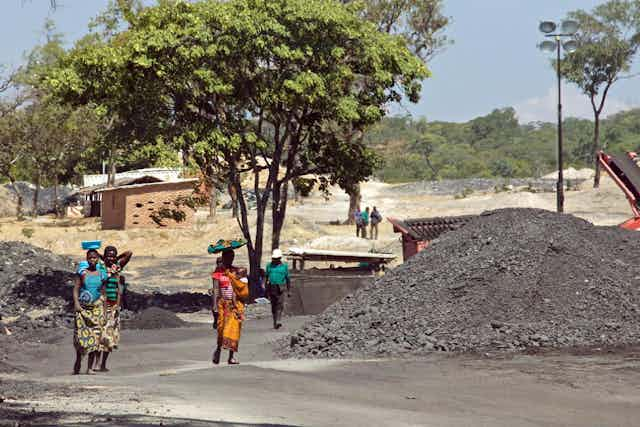The trial of eight Tanzanians is set to resume in the magistrate’s court of Mzuzu, a town on the banks of northern Lake Malawi. The crimes they have been accused of are trespassing, spying and working as foreign agents.
But what did they actually do? And why have they languished in Malawian jails since being arrested over a hundred days ago?
The group of eight hail from Songea, in southern Tanzania. They had heard about a uranium mine in northern Malawi and set up a fact finding mission which was backed by Caritas, a welfare arm of the Catholic diocese of Songea. Their aim was to learn something about what they could anticipate if and when uranium was mined in their own area.
The group includes a journalist, local farmers and activists who have been questioning their country’s permission to give up land to be used for mining.
The court case in Mzuzu has attracted international attention because of the persecution of the eight men and the bad treatment that’s been meted out to them both in jail and during their trial. Malawi stands accused of flouting the rule of law and harassing groups acting in the public interest
A range of problems
The mine in northern Malawi, called Kayelekera, was set up by Australian mining company Paladin in 2009. The company controls the Langer Heinrich uranium mine in the Namib-Naukluft National Park in Namibia. Kayelekera is Malawi’s most significant mining operation.
The Malawi mine faced a range of problems, including a dramatic fall in the price of uranium after the Fukushima nuclear disaster in Japan in 2011. In 2014 it was effectively closed when it was placed under care and maintenance.
During its operations the mine was accused of bad behaviour on a number of fronts. A BBC documentary said it had polluted Lake Malawi – which many people rely on for livelihood – and there were other reports of social dislocation, poor wages, lack of public information and a dearth of benefits for local communities. Since its effective closure, the water supply developed by the mine hasn’t been available to people living in the area even though it was promised as a benefit.
The Tanzanian eight were arrested when they were travelling from their lodgings in Karonga to the mine property. They are Ashura Yasiri, Wala-sa Mwasangu, Binto Materinus, Christian Msoli, Martin Jodomusole, Layinali Kumba, Maliyu Mkobe and Gilbert Mahumdi.
Technically they had not entered the mine precinct, so the accusation of trespass is a spurious one. Evidence given by police in court showed that they were entrapped. They were arrested while their Malawian colleagues who were due to show them the mine were released.
They have been held since 20 December 2016 in conditions that are sub-standard. Their legal access was impeded and their legal team harassed with death threats and the mysterious disappearance of their laptops.
When the case came to trial the magistrate, a former policeman, prevented the defence team from fully cross-questioning witnesses. The trial has been postponed on six occasions, each time disrupting the defence team that must travel from Lilongwe and Dar-es-Salaam.
Fighting for the eight
Recently, the African Uranium Alliance, a network of organisations opposing the detrimental impact of uranium mining, sent a letter of protest to the High Commissioner for Malawi in Pretoria, Prof Chrissie Ndasochera Kaponda. The letter was endorsed by around 50 other organisations from South Africa, Japan, Canada, Brazil, France, Mexico, Denmark, Germany and Nigeria. No acknowledgement or reply has been forthcoming.
The matter has also been reported to the International Commission of Jurists, the African Commission on Human and People’s Rights, and various bodies of the United Nations.
Last year Human Rights Watch released a report on the adverse impact of mining in northern Malawi. One of the key findings, articulated by lead researcher, Katharina Rall, was:
We found that they (residents in mining communities) didn’t have the information they needed to assess risks, to protect themselves and just to understand what’s happening in their communities. We have ourselves struggled with access to information. For example, on water testing, we have yet to receive the results and, of course, it’s more difficult for community members or villagers to access information on issues such as the safety of the water in their community.
The socio-economic footprint of mining in the region of Southern Africa has always had important consequences for local people. It’s natural for citizens to investigate its impact, especially where they are likely to be negative. The rights of all affected communities to safeguard their own interests should be enshrined in law, and not subverted by paranoid governments acting with unnecessary impunity.
Malawi has no right to flout the rule of law and to harass groups acting in the public interest. Citizens of southern African countries should have the right to investigate conditions that might compromise their livelihoods and their land tenure. The country needs to be shamed into respecting the rule of law and releasing the incarcerated Tanzanian eight immediately.

